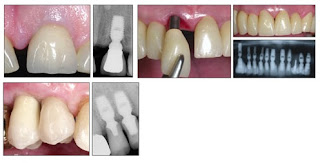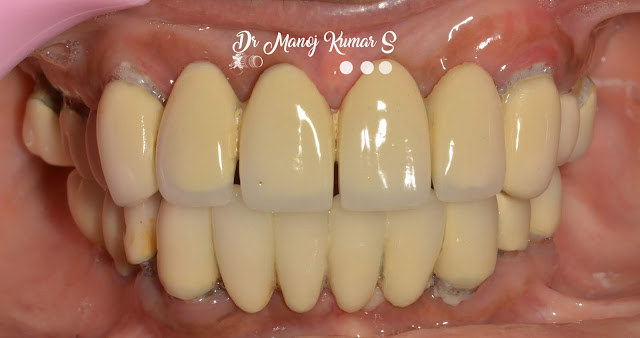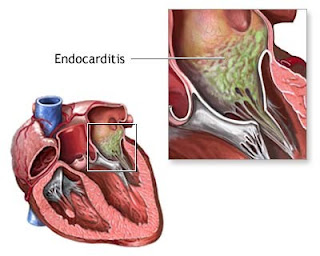BASICS ON DENTAL IMPLANTS


What are implants?
Implants are specially made posts that replace the roots of teeth that are missing and are used to support a new crown, fixed bridge or denture. It is made of titanium, a strong and lightweight material which has been shown to be compatible with the body and safe for use.
Why do we need to replace missing teeth?
Our teeth are an important part of our digestive system as it is needed for chewing food. It plays a role in speech .It is also an important part of our appearance. Finally, it prevents gaps and spaces from appearing between our teeth when a tooth is lost.
What are the advantages over conventional replacements?
The conventional methods of replacing missing teeth are Bridges or Dentures.
Bridges usually involve sticking false teeth onto our existing teeth. This may involve filing down healthy teeth to act as retainers which may compromise the health of these teeth. Bridges can also only be provided when there are sufficient strong remaining teeth. They are however a permanent replacement, although they are likely to need replacement every 10 to 15 years.
Dentures are teeth attached to a plastic or metal plate. They can often be cumbersome as they have to be taken in and out every day and for cleaning. They may not always retain in place well if the shape of the gums and bone in the mouth is not appropriate.
Though bridges and dentures can serve us satisfactorily, Implants provide better support and usually results in more comfortable and stable replacement teeth. It provides better chewing efficiency and allows us to have permanent fixed teeth without trimming our own natural teeth for support, or having to remove the teeth every day. Implants also slow down the shrinkage of our jawbone which occurs as a result of tooth loss.
Are implants dangerous to health?
The materials used chiefly titanium is almost never rejected by the body. These have also never been a report of it being the cause of cancer or any life-threatening disease.
Can Anyone Have Implants?
Unfortunately, just having missing teeth does not automatically qualify someone to have dental implants. Some of the criteria that we need to look at are:
1. Is the patient’s general health satisfactory? What is the general condition of the mouth? The remainder of the teeth and gums needs to be stable in order to put in dental implants which are likely to work. If there are other areas of the mouth with dental decay, broken teeth, or gum disease these will need to be treated first before implants are placed. We will give you an idea of other work that may be needed in order to make the mouth stable. Placing implants in a mouth where there are other untreated dental problems can be a recipe for disaster.
2. Can the patient maintain a healthy mouth? The success of implants can depend on the ability of the patient to keep their teeth and gums clean. We need to be sure this will take place before implants are placed. We will always advise you on how to care for your mouth to allow you to have implants, and also how to care for your new teeth. Your commitment will be to follow our advice.
3. Is there sufficient quantity and quality of bone present to allow implants to be placed? Without the right amount of bone in the right place, it is difficult to place implants. Our diagnostic process will help to determine the availability of bone. This is usually done with the help of x-rays. In some cases, we may use a CT-type scan to obtain a 3-dimensional image for more accurate bone assessment. In cases where sufficient bone is not available a range of grafting techniques can be used.
These are some of the many factors which we look at in the assessment process. We believe that a thorough assessment gives the best chance of a successful result.
Is there an age limit to implants?
You can be too young for implants but age itself is not a barrier. The state of your health is an important criteria and your dentist will determine your suitability for surgery. After general health the most important criteria is probably whether there is sufficient quality and quantity of bone to accommodate implants
Complications of implants.
1. failure of the implant to integrate with the jaw bone.
2. failure due to :
--> overloading of implants due to either an insufficient number of implants in the first place .
--> too much stress being placed on the implants on account of a patient’s habit of excessively grinding or clenching their teeth.
3. post op. swelling & bruising.
Procedure:
We need to do a surgical procedure to bury the implant within the jawbone and allow the body to heal naturally.
After about 3-6 months, the implants will be strong enough to support the load of new teeth which is attached to them.
During the healing period, you will be provided with temporary "teeth" to allow you to carry on your way of life until the bone completely surrounds the implant.
This may be an adhesive-type bridge or a denture.
The procedure is normally carried out under local anaesthesia.
For patients who are anxious, intravenous sedation is also offered.
During the surgery, the local anaesthesia and sedation given practically eliminates all pain.
After the surgery, there will be some discomfort, swelling or bruising but with the appropriate medication, it is usually not unduly uncomfortable. However, it is important to note that different people can heal at different rates.



Comments